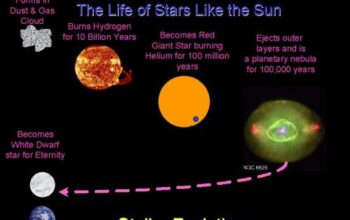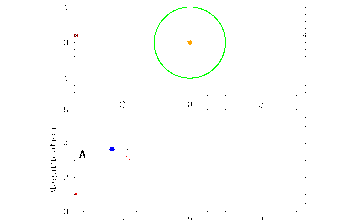The cosmos, a vast expanse teeming with enigmas and complexities, presents a plethora of questions that introspective minds seek to unravel. Despite the remarkable advances in astrophysics and cosmology over the past century, the universe still retains profound mysteries. This article delineates eleven pivotal questions that illuminate the frontier of scientific inquiry and unravel the complexities of the cosmos.
1. What is Dark Matter?
One of the most perplexing constituents of the universe remains dark matter. It is hypothesized to comprise approximately 27% of the universe’s mass-energy content, yet its composition eludes definitive identification. The gravitational effects on galactic structures and cosmic background radiation reveal its existence, yet no direct detection has been achieved. Further progress in particle physics and astronomy is necessary to unveil the nature of this elusive entity.
2. What Constitutes Dark Energy?
Complementing the dark matter conundrum is the perplexity of dark energy, which is believed to account for around 68% of the universe. This enigmatic form of energy propels the accelerated expansion of the universe, defying conventional gravitational expectations. The exact mechanism of its influence remains one of the most critical challenges in modern cosmology. Understanding dark energy could profoundly alter our comprehension of the universe’s fate.
3. Are There Other Universes?
The concept of a multiverse posits that our universe may be merely one of many, each with its own physical laws and constants. While the idea is tantalizing, it branches into philosophical and scientific paradigms that challenge empirical validation. Mechanisms such as cosmic inflation suggest a framework for understanding this hypothesis, yet concrete evidence remains elusive, leaving this inquiry speculative.
4. What Causes the Matter-Antimatter Asymmetry?
The universe is predominantly composed of matter, yet fundamental physics predicts that matter and antimatter should have been generated in equal quantities during the Big Bang. The unknown mechanisms that led to this imbalance represent a significant gap in the Standard Model of particle physics. Experiments at the Large Hadron Collider (LHC) and other facilities continue to search for an explanation, potentially revealing new physics beyond our current understanding.
5. What is the Nature of Time?
Time, a construct that governs both physical processes and human perception, elicits complex philosophical queries and scientific investigations. Is time linear or cyclical? Theories such as Einstein’s relativity have altered our conception of time, yet its fundamental nature remains an enigma. Exploring the implications of quantum mechanics on temporal mechanics may yield deeper insights, but a unified understanding remains unfulfilled.
6. How Did Life Begin?
The persistence of life in the universe, and its origins, give rise to one of the most compelling scientific inquiries. Theories such as abiogenesis and panspermia offer frameworks for understanding how life may have emerged from non-living matter. However, the transition from simple organic compounds to complex biotic systems lacks a definitive explanation. Ongoing astrobiological research seeks to illuminate the conditions conducive to life, both on Earth and beyond.
7. What Lies Beyond the Observable Universe?
The observable universe is limited to the portion from which light has had time to reach us since the Big Bang, estimated at approximately 13.8 billion years ago. However, the universe is believed to extend far beyond this observable threshold. The nature of regions beyond our visible horizon and their potential implications for cosmological models remain veiled in speculation, presenting profound questions about the universe’s true extent.
8. Are We Alone in the Universe?
Given the enormity of the cosmos, the question of extraterrestrial life persists in scientific and philosophical discourse. The Fermi Paradox highlights the contradiction between the vast number of stars and potential habitable planets, and the absence of evidence for extraterrestrial civilizations. The Search for Extraterrestrial Intelligence (SETI) continues to explore this phenomenon, yet the silence echoes profoundly, leaving humanity to ponder its solitude in the universe.
9. What Will Be the Ultimate Fate of the Universe?
The long-term trajectory of the cosmos remains a subject of intense debate and speculation. Theories regarding the fate of the universe include the Big Freeze, Big Crunch, and Big Rip scenarios, each contingent upon the properties of dark energy and cosmic expansion. Determining the ultimate fate of the universe requires a synthesis of observational data and theoretical models, yet definitive conclusions remain pending.
10. How Do Black Holes Affect Space-Time?
Black holes, regions of spacetime exhibiting gravitational acceleration so strong that nothing can escape from them, challenge our comprehension of fundamental physics. They serve as natural laboratories for testing the principles of general relativity and quantum mechanics. Unraveling the interplay between black holes and the fabric of spacetime can provide insights into the nature of gravity and the potential for new physics.
11. What Is Consciousness?
Consciousness, a phenomenon of cognitive awareness and subjective experience, implicates the very essence of existence. The nexus between consciousness and the cosmos is a profound mystery that straddles the disciplines of neuroscience, physics, and philosophy. Unveiling the nature of consciousness and its origins may hold the key to understanding the interface between humanity and the universe.
In conclusion, the cosmos presents an intricate tapestry of questions that challenge our understanding of existence. As scientific exploration persists, it becomes clearer that many aspects of the universe remain shrouded in mystery. The pursuit of knowledge, propelled by curiosity and innovation, ensures that the quest to unravel these enduring questions will continue, shaping the future of our comprehension of the universe.












